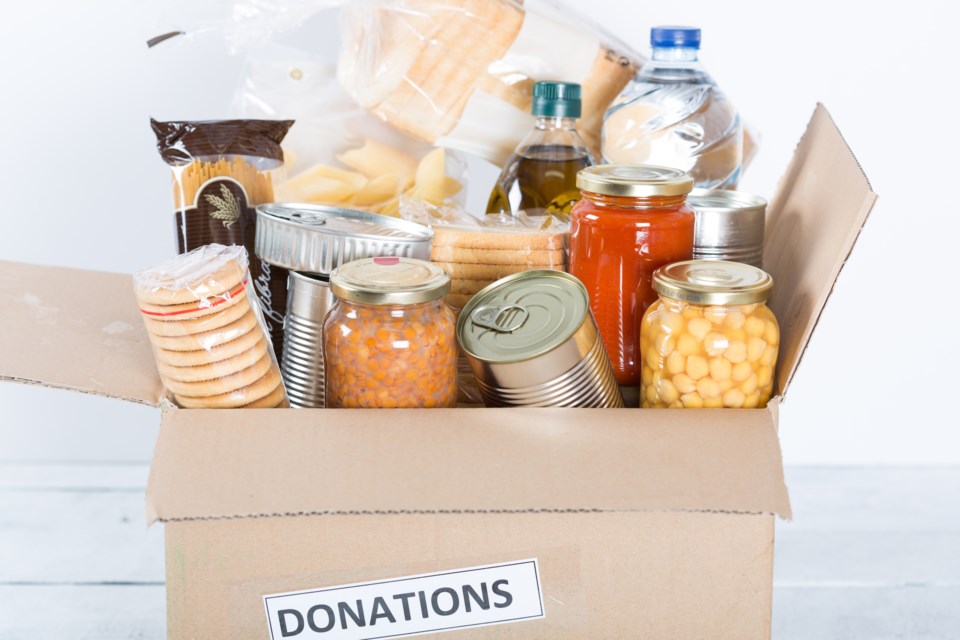COCHRANE - Demand at a Northern Ontario food bank has surged by 150 per cent this year, as more residents in the region grapple with inflation and job losses take their toll, says the manager of the Cochrane organization.
In an interview with TimminsToday, Cochrane Food Bank manager Ardis Chedore said that inflation has hit households hard, especially in the north, where the costs of goods are already higher due to transportation challenges. Layoffs after a fire in the summer are also partially to blame, she said.
“Even the community support, how they would normally donate things to food drives, those families are now feeling like, 'Woah, I can’t donate that box of cereal because it’s so expensive,’” she said.
The Cochrane Food Bank is a hub for Northern Ontario, allocating its resources to other nearby food banks including Iroquois Falls, Black River-Matheson, Smooth Rock Falls, Kapuskasing, Hearst, Timmins and South Porcupine.
The growing demand has the Cochrane organization being more creative in sourcing food. This includes working with local businesses for donations, even if the items are past their best before dates.
“Does it mean that it is not good, no. It just means it's past the freshest point it'll ever be at,” Chedore said.
“Say a store gives me bakery items that are past their best before day by a day, I take them and I can stop the clock for momentarily by putting them in the freezer, and then I'm able to give those to clients on their food day, because I wouldn't have anything bakery wise if I didn't do that.”
There are also unique local economic struggles such as the fire at Rockshield — the community's historic plywood mill — in the summer that led to 100 people losing their jobs.
SEE: No injuries reported after fire at Cochrane's historic plywood mill
RELATED: Cochrane 'looking tragedy in the eye', turning it into opportunity after mill fire
Certain groups are more vulnerable to food insecurity, including young people just entering the workforce, single parents and seniors living off their pensions.
Chedore explained that young people, especially those who have recently graduated, are often ill-prepared for managing their finances and face tough decisions about whether to pay rent or buy food.
Single mothers with young children also face difficult choices, particularly when it comes to purchasing necessary items like formula and diapers.
“Do I eat as a mom, or do I buy that formula that that child needs,” Chedore said, describing the tough decisions faced by many parents.
The Cochrane Food Bank also sees seasonal spikes in demand, particularly during the holidays and the months following them.
Chedore explained that January is often the toughest month for families after the holiday spending spree.
March is another challenging month, as many children rely on school food programs, which are unavailable during March Break.
The summer months also present difficulties for food banks, as donations tend to dip while people are on vacation.
What’s needed
While food donations are always appreciated, certain items are particularly important right now, including sugar and snack bars for kids, seniors and people who are unhoused.
Other staples like soup, salt, butter and oil are also in high demand.
“Cereal is another one of those items that we have the hardest time getting in and keeping in,” Chedore said.
She noted cereal is versatile, used for everything from breakfast to making trail mix or even corn flake chicken.
However, not all donations are ideal, such as eggs from backyard chickens because they’re not graded, Chedore said.
“If somebody has 25 chickens laying tons of eggs, I would love to give them out, but the Porcupine Health Unit slaps our hands and says no,” she said.
Chedore also encouraged donors to be mindful of expiration dates and the condition of items they give.
“We can't give out a can of 1998. That does happen. If the cans are really dented, we can't give them out either, they're not safe anymore,” she said. “If it’s not something you would eat, then it’s probably not best to donate.”
In addition to food, the Cochrane Food Bank is always in need of volunteers.
“Be it for people to make hampers, to help us with stocking, to help us with picking things up, or even delivering to shut-ins,” Chedore said.
As food insecurity continues to rise in Northern Ontario, Chedore remains hopeful that community support will help alleviate some of the burden.
“I will love and rejoice on the day that I have only a handful of clients. That's our goal,” she said.
